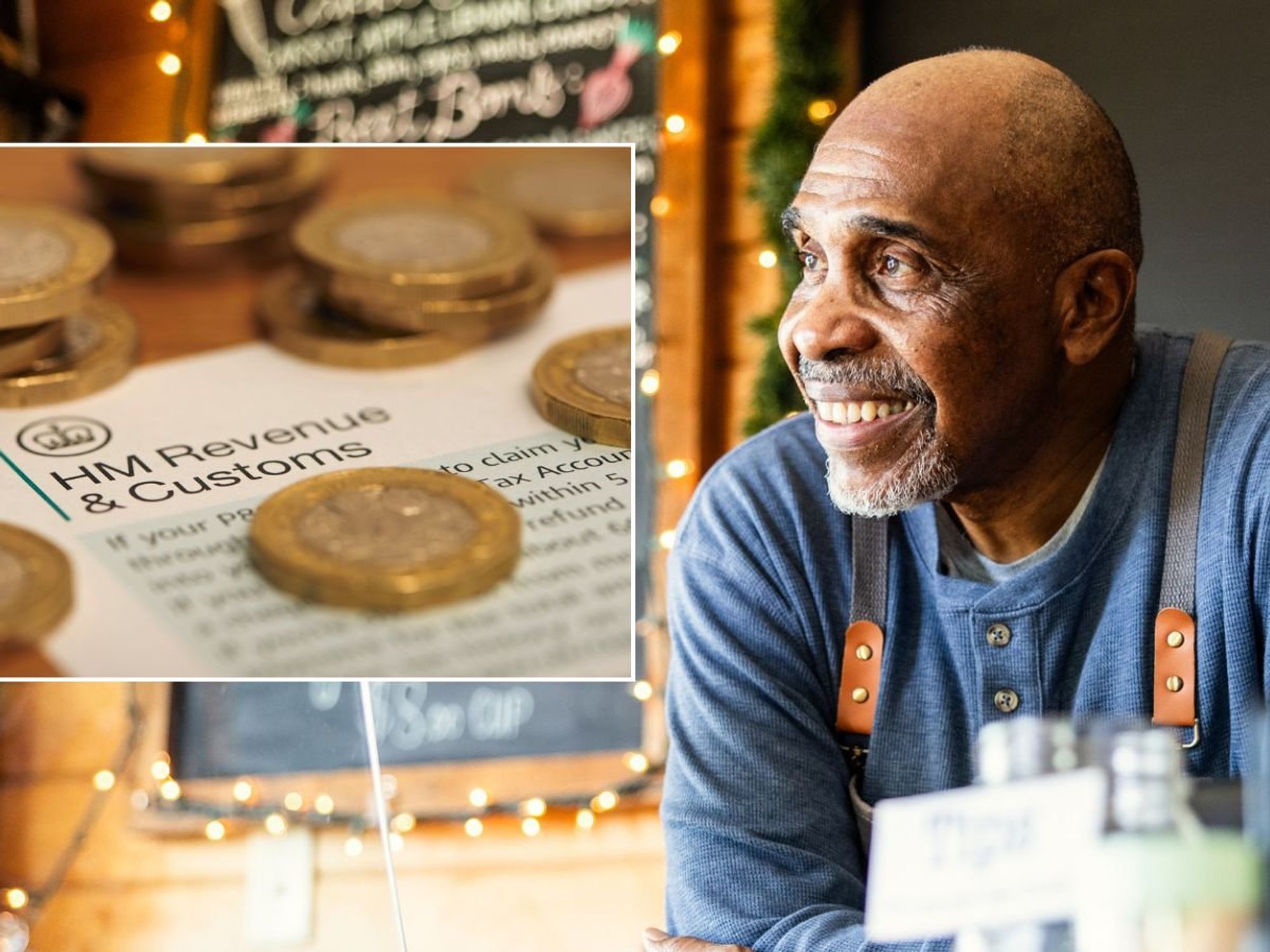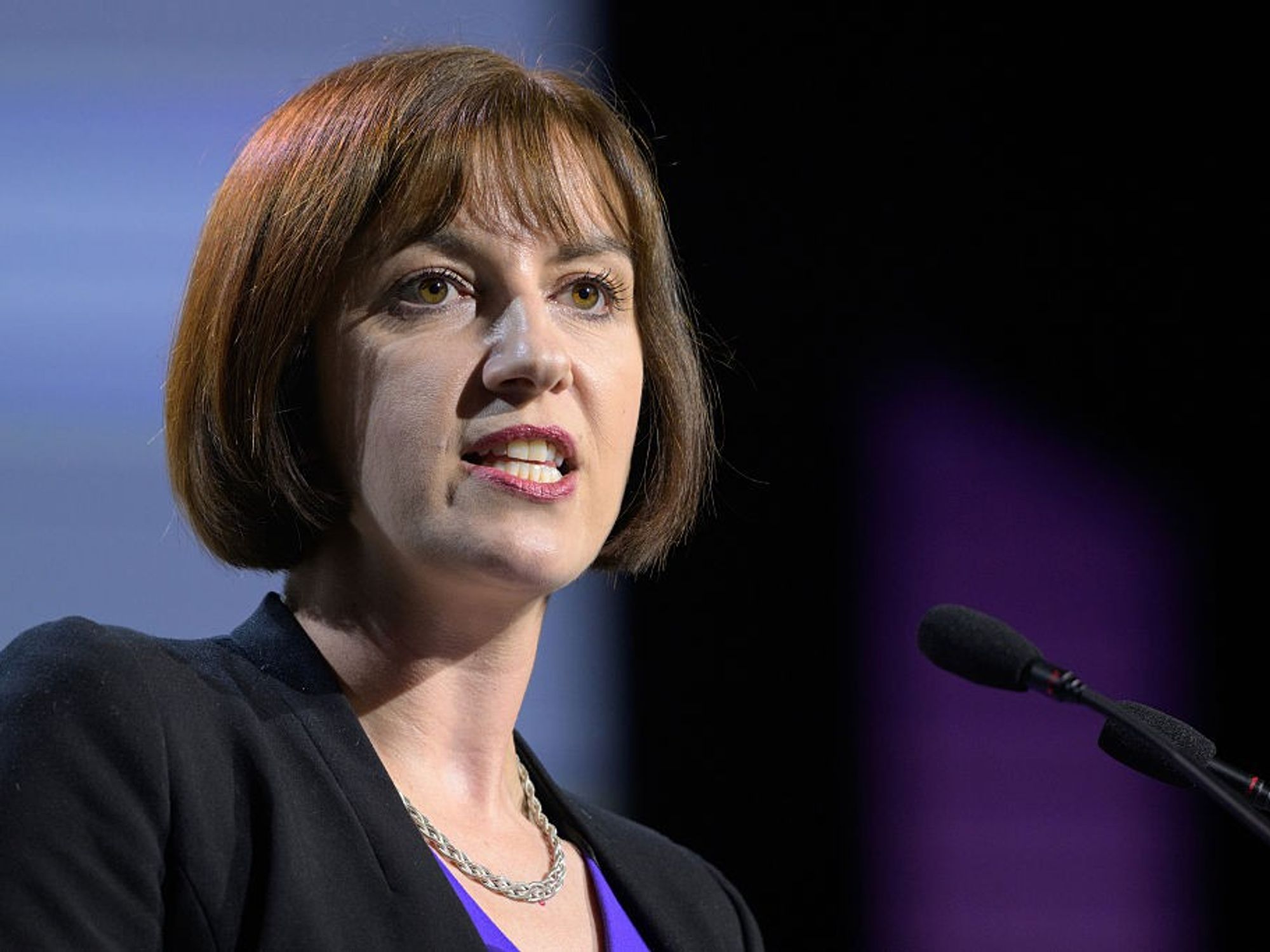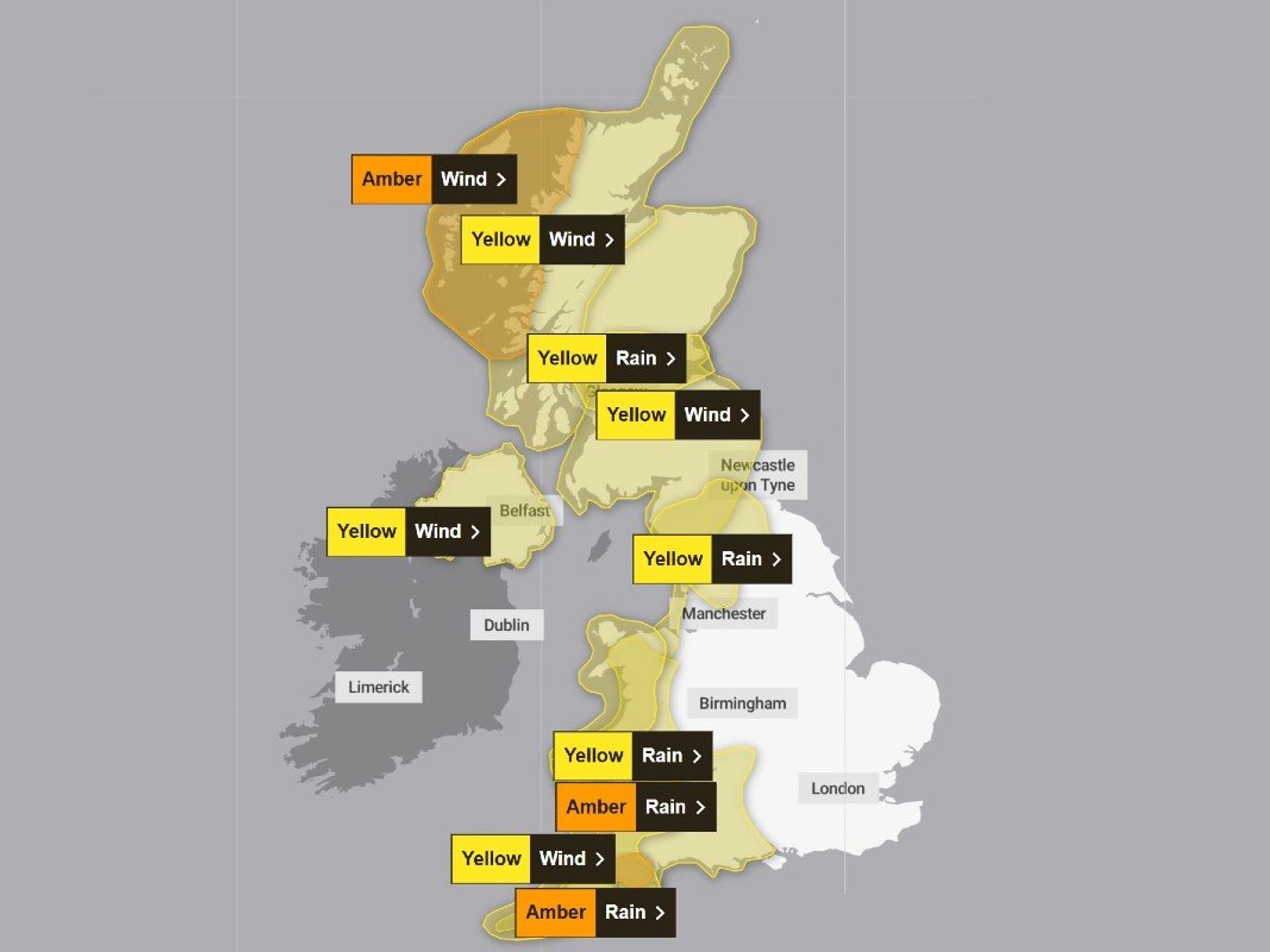Broadband tech giants brought to heel in victory for millions of vulnerable Brits facing landline switch-off
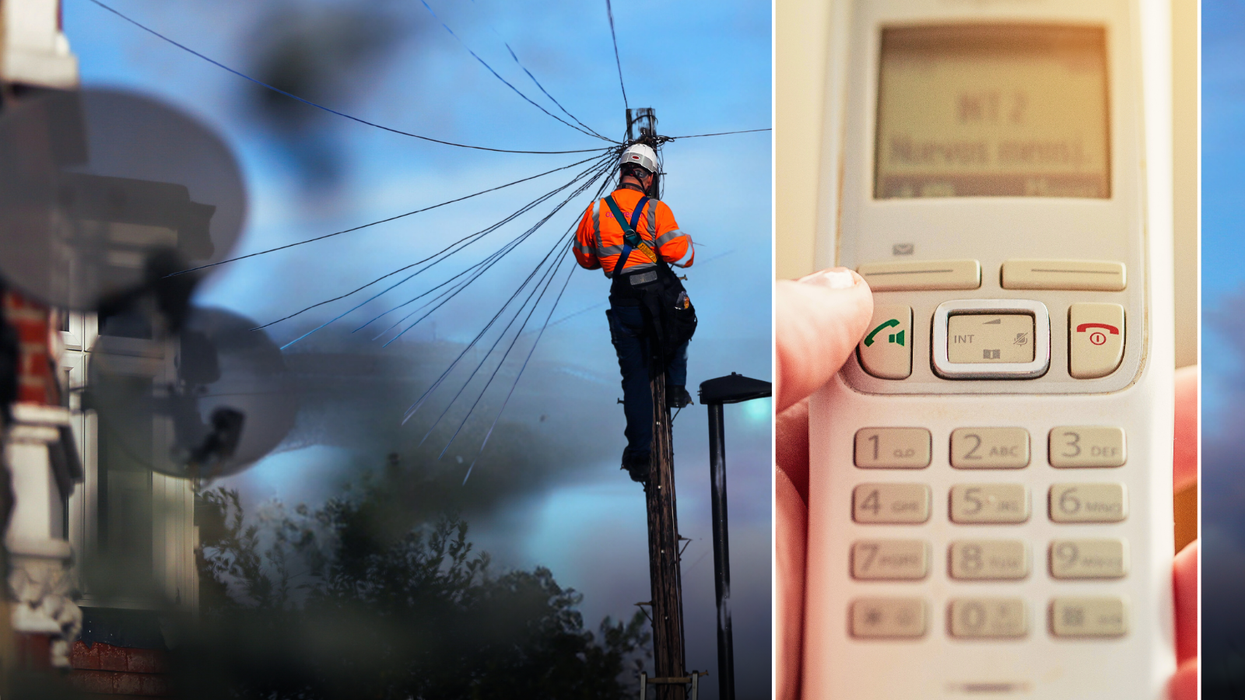
Analogue landlines will be switched off across the UK in 2025, so broadband providers are racing to upgrade millions from copper-based phone lines to digital alternatives
|GETTY IMAGES

Behemoth broadband firms locked into "cast iron set of principles" to reassure two million people
Don't Miss
Most Read
It’s no secret that successes have been few and far between for Rishi Sunak’s Government lately.
But one bona fide victory for the UK Government was quietly confirmed by Technology Secretary Michelle Donelan earlier this week. The MP for Chippenham wrestled an agreement from the biggest broadband networks in the UK, including BT-owned Openreach, to put new protections in place to shield the most vulnerable members of society during the ongoing landline upgrade.
It comes months after BT was forced to suspend its nationwide upgrade of analogue landlines following reports of “serious incidents” that caused personal alarms to break. These emergency buttons, often worn around the neck, are used by some two million people to call the emergency services when they're in distress, have fallen, or injured themselves.
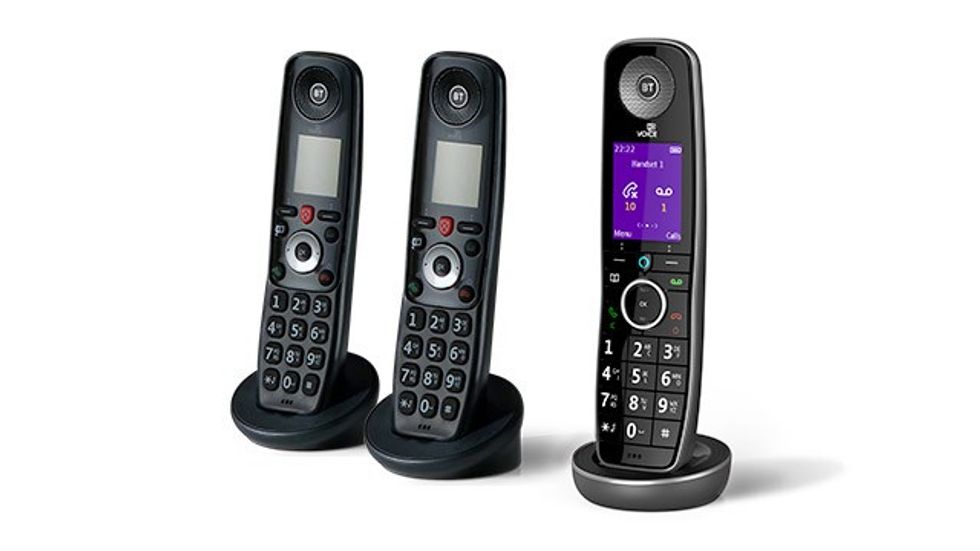
Digital Voice handsets from BT, the proprietary system created by the brand to offer VoIP calls to customers after copper landlines are retired in 2025
| BT PRESS OFFICEThese vital calls are placed via a landline.
The only problem? The switch from traditional copper-line landlines, which have been used across the United Kingdom in some form since 1911, to broadband-powered phone lines can wreak havoc with these important alarm systems.
While it's true that the vast majority of alarm systems work with digital landlines without any modification ...they will lose some critical features. That’s because copper phone lines continue to work during power cuts, allowing emergency calls to be made even if every electrical device has gone dark in your home, but the same is not true for next-generation broadband landlines.

Michelle Donelan announced that seven more broadband suppliers have agreed to the new charter designed to protect the two million people in the UK who rely on a telecare alarm system
| PAA power cut or internet outage will cause vulnerable people’s personal alarms to fail.
That could have dire repercussions for some of the most vulnerable people in our society. BT and Virgin Media O2 halted digital phone network upgrades across the UK in December after there was a concerning number of reports of personal telecare alarms failing.
The UK Government stepped in and started talks with the biggest network operators.
The result of this formal dressing down was announced by Michelle Donelan on X, formerly Twitter, on Monday afternoon.
“We have reached a new agreement with telecoms operators to ensure that vulnerable people in the UK are better protected during the transition to digital landlines,” the Secretary of State for Science, Innovation and Technology wrote in her post. “A new charter signed today ensures that no one is left without access to help when they need it most.”
We have reached a new agreement with telecoms operators to ensure that vulnerable people in the UK are better protected during the transition to digital landlines.
— Michelle Donelan MP (@michelledonelan) March 11, 2024
A new charter signed today ensures that no one is left without access to help when they need it most. https://t.co/HqEfQxCTKD
The UK Government has reached an agreement with seven network operators. These are Openreach, CityFibre, Community Fibre, AllPointsFibre, Community Fibre, Ogi, KCOM, and WightFibre.
For those who don’t know, Openreach is owned by BT and has a nationwide broadband network that covers 99% of homes and businesses in the UK. Popular brands like EE, BT, Sky and Vodafone use Openreach cables to connect to customers.
Virgin Media O2, which connects over 16 million homes and plans to rival Openreach, and BT reached an agreement with the Government and signed-up to the same charter late last year.
With the latest announcement, Rishi Sunak’s Technology Secretary has now secured agreement from the majority of the telecoms sector - from operators in charge of maintaining the network infrastructure all the way to internet and phone providers themselves.
The charter they’ve signed forces them to...
- Always check before any landline upgrade begins whether the person at the address owns a telecare alarm system
- Provide a minimum of 12 months’ notice to phone providers before enforcing the landline switchover of a customer
- No telecare alarm user will be migrated to a digital landline without the provider, customer or telephone company confirming that they have a functioning solution in place
- Telecom operators must work with Ofcom, the UK Government, and phone providers to create a shared definition of a “vulnerable” customer, so it is no longer dependent on the company and establishes an industry-wide standard
The telecoms industry will now continue the process of upgrading landlines to a digital alternative that relies on an internet connection, known as Voice over Internet Protocol (VoIP) or All-IP telephony. The upgrade has to be completed before the nationwide switch-off of analogue landlines planned for 2025, but the Government says the above conditions should reassure people.
Technology Secretary Michelle Donelan said: “It is absolutely right that the most vulnerable people in our society should feel safe, secure and have complete confidence in the services provided to them.
“That’s why I have brought our biggest network providers and industry regulator to the table, agreeing a cast iron set of principles to reassure people and put their minds at ease. The recent issues families have had to endure are unacceptable and today’s agreements will help to protect consumers in future.”
If you already have a full-fibre broadband connection, you’re likely already using a VoIP system to make your calls. The single biggest provider in the country, BT, halted the sale of copper-based products to all new customers back in September 2023.
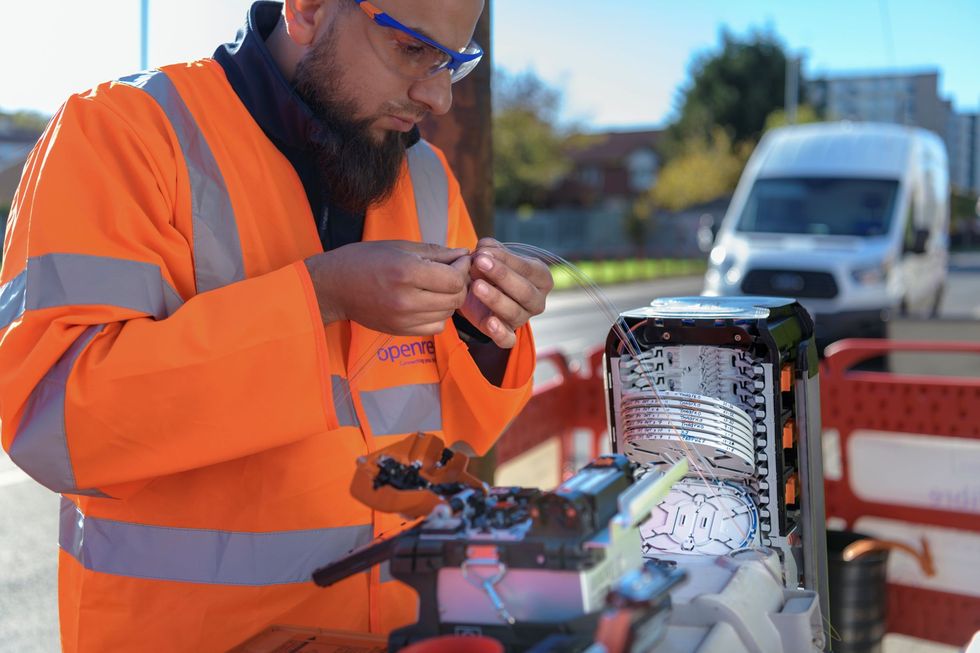
An Openreach engineer is pictured installing fibre-optic cables to an exchange location. BT-owned Openreach culled new sales of copper-based landlines in September 2023
| BT PRESS OFFICETelecom brands promise clearer calls and better protection from fraud and spam calls when switched to a broadband-powered landline.
If you're unsure whether you're already using the newer system, the easiest way to check whether you're already using the new system is to look for "Digital Voice" branding on the handset or check whether it's plugged into the back of your Wi-Fi router or a landline socket.
And if you haven’t been switched from a traditional copper-based landline to an internet-powered alternative and you’re concerned, know that companies must not start the switchover until you’re happy with the process ahead and any telecare alarm systems have been verified by engineers.
LATEST DEVELOPMENTS
- BBC iPlayer now blocks downloads on Windows and Mac laptops
- Is arms race to fastest broadband a plot to get more cash from you? We asked an expert
- Hackers hijack over 15,000 Roku accounts and spend on stolen credit cards
- Microsoft just issued all Windows 10 users with an impossible choice
With a 12-month notice period enforced by the UK Government, there will be plenty of time to discuss with the company or contact your local MP before any cables are cut.
Sure, there’s still a lot for Rishi Sunak to do — there’s no sign of his pledge to stop the boasts coming true any time soon, the UK economy is currently languishing in recession, and Conservative MPs are purportedly queuing up to cross the floor and join Reform UK — but this is a rare and welcome victory that will protect millions of people.





